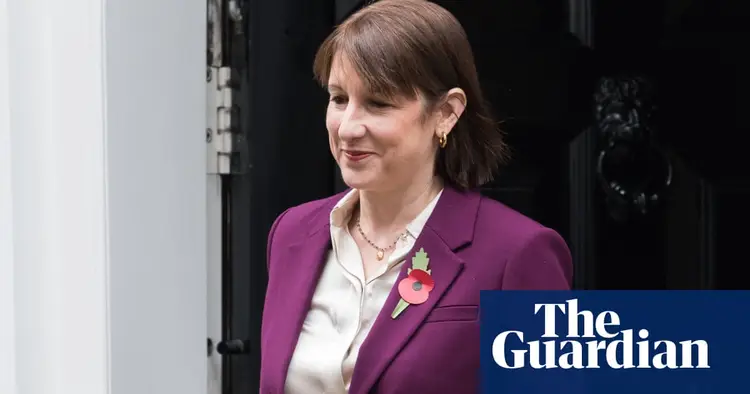National minimum wage to rise by 6.7% from April, Reeves confirms

Starting in April, the national minimum wage is set to increase to £12.21 per hour, following a 6.7% raise announced by the chancellor. This change is expected to benefit over 3 million workers who earn lower wages.
Rachel Reeves called the initiative, which amounts to £1,400 annually for qualifying full-time employees, a “major advancement” in fulfilling Labour’s pledge to establish a “true living wage for workers.”
The minimum wage for employees between the ages of 18 and 20 will increase from £8.60 to £10 per hour, marking an increase of over 16%—the highest raise ever recorded.
This means that people who work full-time will receive a £2,500 salary increase next year, following the government's statement that they should eventually earn as much as their older colleagues.
Nevertheless, the increased rate remains below the £12.60 per hour figure established by the Living Wage Foundation, which is voluntarily paid by 15,000 employers in the UK.
Next year, the minimum hourly wage for apprentices will see an increase. For example, an 18-year-old apprentice working in fields like construction will experience an 18.0% rise in their minimum pay, going from £6.40 to £7.55 per hour.
The upcoming hikes will build on the government's initiative to enhance workers' rights, which, according to the Treasury, is expected to increase the earnings of the least-paid employees by as much as £600 annually.
Business organizations have expressed concerns that the upcoming increase, which will be revealed in the budget along with a hike in national insurance contributions on wages, will put additional strain on profit margins and potentially impact investment strategies.
Unions maintained that companies could handle the adjustment. Paul Nowak, the general secretary of the TUC, stated, “This raise will truly impact those earning the least in our country, especially as housing costs, bills, and mortgage payments remain high.”
The independent Low Pay Commission reviewed various economic data before reaching this conclusion. They understand that employers are capable of handling this increase.
Whenever the minimum wage increases, some people claim it will lead to higher unemployment rates. Yet, every time, their predictions turn out to be incorrect.
However, John Foster, who holds the position of chief policy and campaigns officer at the Confederation of British Industry, stated, "Both politicians and businesses share a common goal of making sure that individuals have access to rewarding jobs that pay well."
The only viable way to reach this goal – not just for minimum wage workers, but for the entire economy – is through increased growth and productivity.
The national living wage has shown to be an effective means of safeguarding the earnings of those who are less fortunate and has contributed to fairness among those in the lower income bracket.
"However, with productivity remaining flat, companies will need to adjust to this rise in costs while facing a tough economic environment and increasing strain on their profit margins."
He pointed out that this action could negatively impact business investments precisely when they are crucial for fostering growth.
Nye Cominetti, an economist at the Resolution Foundation think tank, remarked that the modest increase in the minimum wage—marking the first time in nearly ten years that it has matched the average wage growth—is a reasonable decision given the anticipated increase in employer national insurance contributions occurring simultaneously.
He proposed that the government might consider taking on bolder initiatives going forward.
The minimum wage has increased by nearly 10% each year for the last two years, amid significant inflation. This year's adjustment aligns with the advice from the Low Pay Commission, which was directed by government officials to take the cost of living into account for the first time in their assessments.
Philippa Stroud, who leads the commission and is a member of the House of Lords, stated, "The government has made their goals for the national minimum wage well known, highlighting its significance in helping to maintain workers' quality of life."
Meanwhile, employers have faced a more than 20% increase in the adult wage over the past two years, which has brought about various challenges in addition to other financial pressures they are already experiencing.
"Our responsibility is to find a balance between these factors, guaranteeing that the National Living Wage (NLW) offers a just salary for the lowest earners while also considering economic elements. These rates ensure that the lowest-paid workers receive an actual increase in their pay."



























































